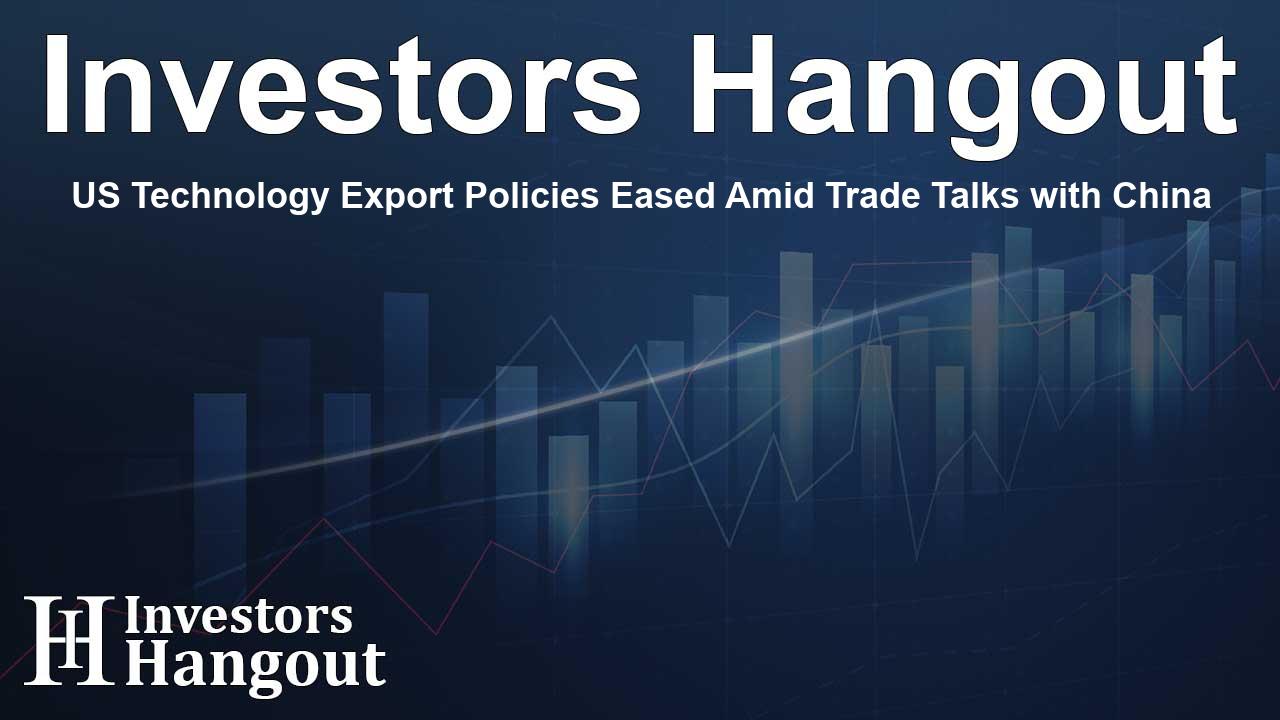US Technology Export Policies Eased Amid Trade Talks with China

US Eases Technology Export Restrictions
Recently, the United States has decided to pause its restrictions on technology exports to China. This significant decision aims to facilitate ongoing trade discussions with Beijing and provide support for the anticipated meeting between President Donald Trump and Chinese President Xi Jinping. The news unfolded according to credible reports, underscoring a shift in the US approach toward China.
Implications for Semiconductor Manufacturers
With this policy adjustment, major semiconductor manufacturers are likely to benefit greatly. Companies such as Nvidia, Broadcom, Advanced Micro Devices (AMD), Marvell Technology, Arm Holdings, ON Semiconductor, and Micron Technology are at the forefront of this potential growth. This easing of restrictions is poised to provide these companies a favorable environment to operate within.
Nvidia's Recent Developments
Nvidia has been particularly active with its recent announcement to resume sales of H20 AI chips to China. This marks a reversal of earlier actions by the Trump administration that limited exports, primarily due to national security concerns. The new decision reflects a changing attitude towards engagement in the technological exchange.
Trade Discussions Between the US and China
The broader context of this pause includes scheduled high-level economic discussions between U.S. and Chinese officials aimed at resolving various trade grievances. The talks are set to focus on long-standing issues that have led to friction between the two economic powerhouses.
Future Expectations from Major Players
Analysts expect these developments to lead to a recovery in shipments for Nvidia's products and other tech companies. For example, a recent forecast by a market analyst raised Nvidia's stock target, indicating optimism regarding renewed shipments to China alongside heightened demand across the tech sector.
National Security Concerns Addressed
Despite the positive business outlook, the easing of export controls is not without criticism. Some national security experts and former officials have expressed concerns about potentially diminished strategic advantages in fields like artificial intelligence. This letter of concern highlights the ongoing debate between fostering trade and protecting national security interests.
Potential Economic Outcomes
The potential increase in revenue for semiconductor manufacturers could far exceed expectations, creating significant upside for these companies. As trade relations continue to evolve, the projected revenue from various product lines shows a promising outlook, pushing companies like AMD and others into a competitive position.
Conclusion: A New Era in Trade Relations
In summary, the decision to relax technology export restrictions signals a pivotal moment in the US-China economic relationship. Firms in the semiconductor sector are likely to find renewed strength and opportunities in this shifting landscape. As these vital discussions unfold, they hold the potential to reshape not only technology collaboration but also the overall global economic environment.
Frequently Asked Questions
What led to the US easing technology export restrictions?
The US aims to support ongoing trade discussions with China and foster relations between the nations.
How might this policy shift affect semiconductor companies?
Leading companies like Nvidia, AMD, and others could see increased sales and recovery of their product shipments.
What are the potential risks of easing these controls?
Critics highlight concerns regarding national security, particularly in the AI sector, suggesting risks of reduced strategic advantages.
Which companies are expected to benefit the most from this policy change?
Major firms in the semiconductor industry, including Nvidia, Broadcom, AMD, and Micron Technology are anticipated to benefit significantly.
What are the expected outcomes of the US-China economic discussions?
If successful, these discussions could lead to improved trade relations and new agreements that support both economies.
About The Author
Contact Kelly Martin privately here. Or send an email with ATTN: Kelly Martin as the subject to contact@investorshangout.com.
About Investors Hangout
Investors Hangout is a leading online stock forum for financial discussion and learning, offering a wide range of free tools and resources. It draws in traders of all levels, who exchange market knowledge, investigate trading tactics, and keep an eye on industry developments in real time. Featuring financial articles, stock message boards, quotes, charts, company profiles, and live news updates. Through cooperative learning and a wealth of informational resources, it helps users from novices creating their first portfolios to experts honing their techniques. Join Investors Hangout today: https://investorshangout.com/
The content of this article is based on factual, publicly available information and does not represent legal, financial, or investment advice. Investors Hangout does not offer financial advice, and the author is not a licensed financial advisor. Consult a qualified advisor before making any financial or investment decisions based on this article. This article should not be considered advice to purchase, sell, or hold any securities or other investments. If any of the material provided here is inaccurate, please contact us for corrections.
